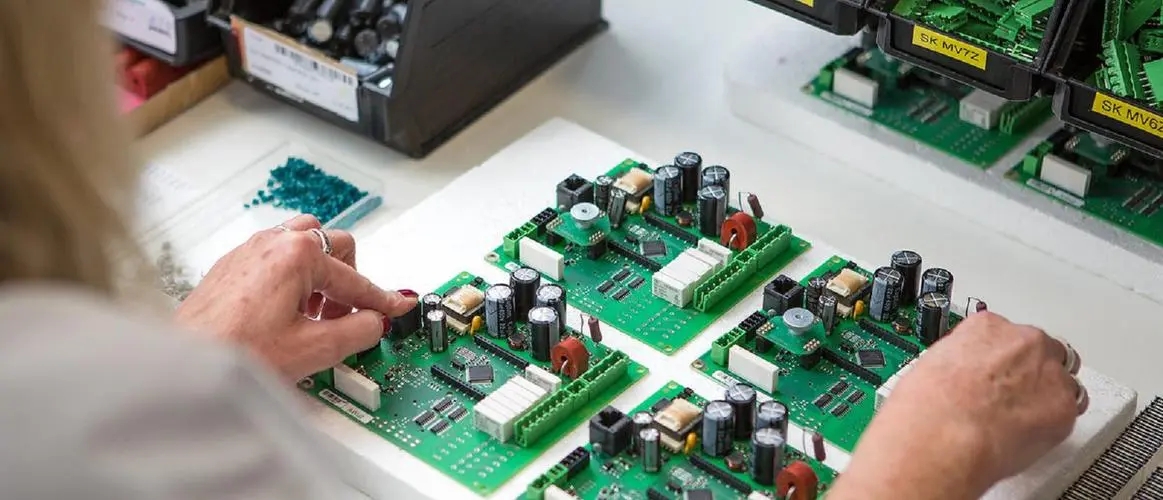nouvelles
Modular vs Non-Modular Power Supply: Which is Better?
Auteur: Module d'alimentation ZYG Time: 2023-10-13
For any computer enthusiast or tech-savvy individual, building a high-performance computer is a deeply rewarding experience. When it comes to choosing the components, one crucial decision that often arises is whether to opt for a modular or a non-modular power supply. Both options have their merits, but it is important to understand the differences and weigh the pros and cons before making a final decision.
A power supply unit (PSU) is an essential component of any computer system. It converts the alternating current (AC) from the wall outlet into direct current (DC) that the computer’s components can utilize. A modular power supply offers a unique advantage – the ability to detach or add cables as necessary. On the other hand, a non-modular power supply comes with a fixed set of cables that are permanently attached to the unit.
One of the most significant advantages of a modular power supply is its flexibility. It allows users to connect only the cables they need for their specific setup, minimizing cable clutter and improving airflow within the computer case. This not only enhances the overall aesthetics of the system but also facilitates better cooling performance. Additionally, modular power supplies make cable management significantly less challenging, making it easier to achieve a clean and organized build.
Moreover, modular power supplies often come with higher-end models that feature better build quality and more advanced features. These premium options tend to use higher-quality components and offer improved efficiency, resulting in reduced power consumption and lower energy bills. They may also come equipped with features like fanless operation, which provides a quieter computing experience.
However, it is important to note that modular power supplies often come at a higher price point compared to non-modular units. This can be a deterrent for budget-conscious individuals or those who prioritize affordability over flexibility. Furthermore, the detachable cables in modular power supplies introduce an additional point of failure – loose connections. If not properly secured, these connections can become loose over time, leading to intermittent power delivery or even system instability.
Non-modular power supplies, on the other hand, offer a simpler and more cost-effective solution. Since all the cables are permanently attached, there is no risk of loose connections. Additionally, non-modular power supplies are generally more affordable compared to their modular counterparts, making them an attractive option for budget builds.
However, the fixed cables of non-modular power supplies can present challenges when it comes to cable management. The excess cables that are not required for the specific build need to be neatly tucked away, often requiring additional effort to maintain a clean and organized appearance. This can hinder proper airflow and result in higher temperatures inside the computer case, potentially affecting the overall performance and lifespan of the components.

The choice between a modular and a non-modular power supply ultimately depends on individual preferences and requirements. Modular power supplies offer greater flexibility, improved cable management, and better overall aesthetics. They are particularly advantageous for individuals seeking a high-end build or those who prioritize efficient cooling. On the other hand, non-modular power supplies are more cost-effective and provide a simpler solution for those on a budget.
Ultimately, the decision should be based on factors such as budget, build complexity, and personal preferences. Regardless of the choice made, it is crucial to select a power supply unit from a reputable brand with sufficient wattage to ensure stable and reliable power delivery to the computer system.
les informations pertinentes
-
2024-12-26
AC and DC power supply: the poetry of electricity in modern life
In the evolution of human civilization, electricity is undoubtedly one of the most brilliant pearls. It not only lights up the night, but also drives the progress of science and technology, making our lives more colorful. In the world of electricity, AC and DC power supply exists as a cornerstone, with its unique charm and wide application fields. 1. The long-standing journey of electricity Looking back on history, electricity was first known and used by people in the form of direct current (DC). From the earliest voltaic battery to Edison's electric light, DC power supply has become the first choice for early power applications with its stable and reliable characteristics. However, with the growing demand for electricity, AC power supply...
Voir les détails -
2023-9-22
High-Efficiency Modular 750W Power Supply for Superior Performance
The demand for high-performance electronic devices is at an all-time high. From gaming rigs to professional workstations, users require power supplies that can deliver reliable and consistent performance. One such power supply that has gained immense popularity is the High-Efficiency Modular 750W Power Supply. With its cutting-edge technology and superior design, this power supply is a game-changer in the industry. Its high-efficiency rating ensures that energy is efficiently converted, reducing power wastage and saving on electricity bills. The modular design allows for easy customization and cable management, resulting in a cleaner and tidier system. The High-Efficiency Modular 750W Power Supply is engineered to meet the demands of even the most power-hungry components. It is equipped with premium quality capacitors and...
Voir les détails -
2022-9-27
Avantages des alimentations modulaires
Simple design. Power can be obtained with just one power module and a few discrete components. Shorten development cycles. Vess modular power supplies typically have a variety of input and output options. Users can also overlap or overlap to form a modular combined power supply to achieve multiple inputs and multiple outputs, which greatly shortens the development time of prototypes. Flexibility to change. If the product design needs to change, simply convert or parallel another suitable power module. Low technical requirements. Weisman modular power supplies are generally equipped with standardized front-end, highly integrated power modules and other components to make power supply design easier. The module power supply shell adopts the integrated structure of radiator, radiator and shell, which realizes...
Voir les détails -
2023-7-11
Exploring the Efficiency and Performance of Bidirectional DC-DC Converters
Introduction: Bidirectional DC-DC converters have gained significant attention in recent years due to their ability to efficiently transfer power bidirectionally between two different DC voltage sources. These converters are crucial in various applications, including renewable energy systems, electric vehicles, and energy storage systems. This article aims to explore the efficiency and performance of bidirectional DC-DC converters, shedding light on their advantages, challenges, and potential improvements. 1. Working Principle of Bidirectional DC-DC Converters: Bidirectional DC-DC converters, also known as buck-boost converters, use power semiconductors to convert DC voltage from a source to a desired voltage level. These converters can work in both step-up (boost) and step-down (buck) modes, allowing power to flow in either direction. By employing appropriate control algorithms, bidirectional...
Voir les détails -
2023-5-13
12V AC to DC Converter for LED
Introduction In this article, we will be discussing the 12V AC to DC converter for LED lights. The purpose of this converter is to transform the alternating current (AC) voltage into direct current (DC) voltage in order to power LED lights. What is a 12V AC to DC converter for LED? A 12V AC to DC converter is an electronic device that changes the voltage of an alternating current power source to a direct current power source. This converter is specifically designed for LED lights, which require a constant DC voltage to function properly. Why do we need a 12V AC to DC converter for LED? LED lights are highly popular due to their energy efficiency and long lifespan. However,...
Voir les détails -
2023-12-19
With the rapid advancement of technology, electronic devices have become an inseparable part of our daily lives. From smartphones to laptops, these gadgets have revolutionized the way we communicate, work, and entertain ourselves. However, one common challenge that every electronic device faces is the need for a reliable and efficient power supply. To address this issue, the DC to DC step-down adjustable power supply module has emerged as a game-changer in the field of voltage regulation. This module offers a wide range of benefits, including increased efficiency, voltage stability, and versatility. One of the primary advantages of using a DC to DC step-down adjustable power supply module is its ability to efficiently convert higher voltages into lower ones. This is...
Voir les détails


















